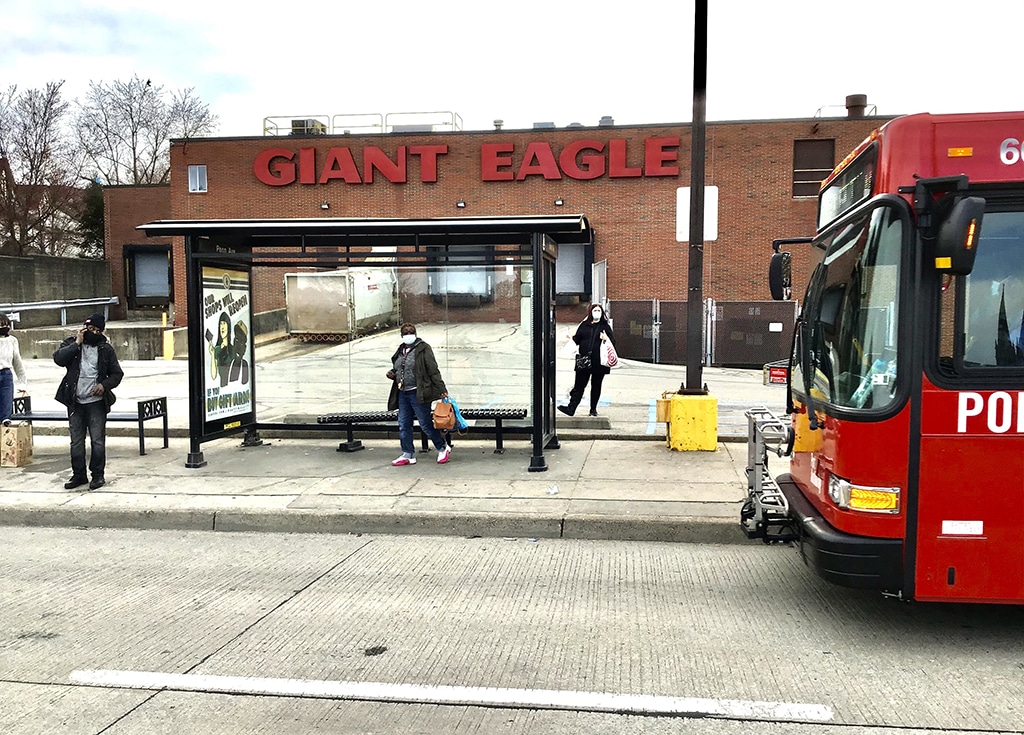 The Board of the Port Authority of Allegheny County today presented and authorized a resolution for a 40-day public comment period on its proposed Fiscal Year 2022 proposed fare policy changes. This plan is the result of a consultant’s analysis that began in 2019. We and our allies find it to be deeply inadequate at addressing inequities in public transit fares and ensuring access to low-income riders.
The Board of the Port Authority of Allegheny County today presented and authorized a resolution for a 40-day public comment period on its proposed Fiscal Year 2022 proposed fare policy changes. This plan is the result of a consultant’s analysis that began in 2019. We and our allies find it to be deeply inadequate at addressing inequities in public transit fares and ensuring access to low-income riders.
The comment period on this proposal runs from March 26, 2021, to May 5, 2021, There will be virtual public hearings where stakeholders can share their views on Thursday, April 22; Friday, April 30; and Tuesday, May 4.
The Board acknowledged today that this fare proposal does nothing to help cash riders and is the beginning of the conversation, not the end. Staff from Pittsburghers for Public Transit, Pittsburgh Food Policy Council, Casa San Jose, and the Alliance for Police Accountability then gave testimony regarding our organizations’ views of the plan.
Below is the testimony that our grassroots organizer Dana Dolney provided at this meeting.
![]() Want to support this campaign? Sign onto a letter to help prioritize fare relief for low-income riders to ensure a full economic recovery for our region.
Want to support this campaign? Sign onto a letter to help prioritize fare relief for low-income riders to ensure a full economic recovery for our region.
Just Harvest is deeply concerned with the Port Authority’s new recommendations on fare restructuring. They fail to address key issues of equity, access, and the transit system’s sustainability that we and so many others brought forward when this process began over two and half years ago. These recommendations will not close the gaps and disparities that have only grown during the pandemic, especially for lower-income families and communities of color.
In June, we spoke to you on behalf of the people we serve, whose numbers have grown even larger than they did during the last economic crisis, the Great Recession. At that time, we asked you to help make Port Authority a creative problem-solver and to show leadership during this crisis.
Almost a year later we are still receiving endless calls from folks who have not had income for months, who are just trying to figure out how to meet their most basic needs. And one of those most pressing needs is transportation.
They need affordable access to transportation to get to possible job opportunities, to get the COVID vaccine, to get food at a grocery store to feed their families.
Home health aides and nursing home workers – they have endured endless tragedies and illness during this time- and many still are not safe. Essential workers, folks who are employed at low-wage work, as cashiers and stockers, restaurant workers…they are clinging to their jobs on the frontlines.
For so many of them, Public transit is their only way to get to those jobs taking care of and serving so many of us and our loved ones.
The hardest-hit folks are seeing increases in other costs, too…. while hours and wages decrease or they’ve lost their jobs altogether. Rent is still due, utilities for many are still due, kids need to be taken to daycare or learning centers, and food prices are rising.
We appreciate the improvement of free transfers for three hours on the card and the rolling timeline for when ConnectCards. but for low-income people, who make up a significant percentage of your ridership, the new Port Authority recommendations entirely miss the mark.
These changes still won’t help those who rely on cash fares and cannot get and do not even have access to Connect Cards, especially in low-income areas that depend on public transit. They can’t make use of the 3 hours of free transfers you’re proposing. There are no savings for them. There is no assistance, no equity in these proposals for those that need the help the most.
They still can’t gather together the money to pay in advance to enjoy the discount that weekly, monthly, and yearly passes offer. Fare capping, one of the things the consultant set out explicitly to address, is nowhere to be found as a solution because it is said to be too technologically difficult to do. After 2 and a half years we deserve better answers and solutions than that.
These recommendations can and must be better. Please recognize how transit is integral to public health. Improving transit access for those that need it most will only strengthen the transit system and all the systems and communities that rely on it.
Today we want to encourage you to hold more hearings and to include more of our prior suggestions and recommendations to address a number of needs not met or mentioned. These include the enforcement of fare payments or fare incentive programs in addition to fare capping or other low-income fare programs from the original Fair Fares platform.




No comments yet.